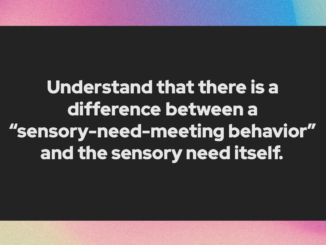While going through old posts, I found a great exchange in the comments that now I’m turning into its own post…
Q: It’s important to me as a parent to let my child play freely and explore and learn through playing. However, their older sibling feels like they need to “teach” them how to do things “right”. How do I explain to the older sibling that *they* got the chance to learn through playing and exploring, and I want the same thing for their younger sibling!
My answer was:
To some extent, that’s just part of being a second-born (or third-born, etc) child…they don’t have an identical experience to children who are raised solely by adults, because they’re being raised partially by children. 😉
You can give the younger sibling a new toy or play material to explore at a time when their older sibling isn’t around. In our family, where younger sibling goes to preschool 3 half-days a week, and older sibling is in school, that often means while the older sibling is at school but the youngest isn’t, we give her access to new/different play materials during that time that she doesn’t always have access to when they’re both home. Depending on the play material and if it’s safe to try unsupervised, during our established “quiet time” (our carryover from when we used to have nap time) is another good time to let the kids explore and play freely, separately.
You can give the two of them separate playspaces in which to play. You can continue to patiently remind them. You can set them up with something to “teach” you about, or join in the play…especially if you keep being silly and getting it wildly wrong in a silly way to diffuse any actual power struggle in trying to teach.
You can trust that the younger sibling will likely go through phases where they are more “compliant” with older sibling and really value trusting them and learning whatever they’re teaching…and that they’ll also go through phases where they are strongly opinionated and really do not want to be taught anything! All children go through phases of regulation and dysregulation, and phases of seeking connection over all vs seeking autonomy over all.
You can trust that their relationship is their own and that it will shift and change over the years and that you don’t have to get intensely involved in sorting it out!


